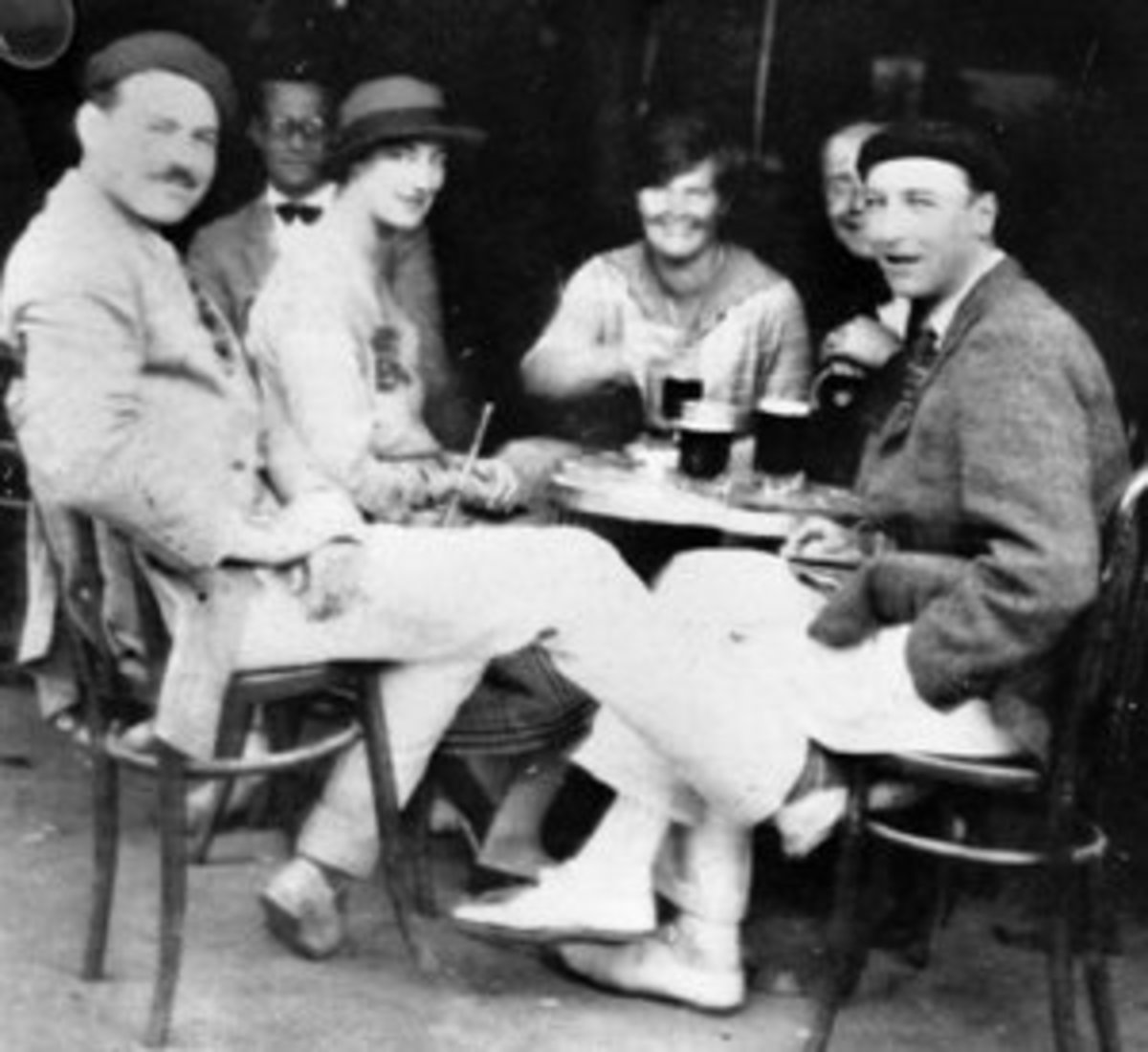- HubPages»
- Books, Literature, and Writing»
- Literature»
- American Literature
The Great Gatsby F.Scott Fitzgerald Sample Essay on Major Themes (The American Dream)
Passage Analysis Essay. Based on key passages in the text.
Fitzgerald portrays the 1920’s as a time of decaying social and moral values. This is evident in the greed, and the empty pursuit of happiness and pleasure we see in the novel. Gatsby, our protagonist, represents Fitzgerald’s predominant concern in this text; the American dream. Fitzgerald conveys to the audience that the American dream disillusions people, as it does to Gatsby, and in the end leaves them with nothing more than ‘dead dream[s]’. Fitzgerald affirms that dreams are not easily achieved and that in the end our dreams become ‘no longer tangible’, which Gatsby evidently experiences in the second passage. This disillusionment is conveyed through the use of Gatsby’s belief in the “green light” which represents his hopes and dreams for the future. Gatsby associates this ‘green light’ with Daisy, she as he reaches towards it as a guiding light to help him achieve his goal. This ‘green light’ can be generalized by the audience as a symbol for how Americans (who believed in the American Dream) would have once viewed their ambitions, that seemed so distant yet so easy to conceive.
At the opening of the novel, we are introduced to our narrator, whom we immediately trust as he “Reserv[es] judgements”, and although he admits that his ‘tolerance’ ‘has a limit’, his complete honesty seeps through his words, and we at once are transfixed by our narrator’s moral voice. It is with this realization that we soon grasp the reason why Nick’s narrative voice sounds so much like a conversation; Fitzgerald uses dashes between his cleverly crafted sentences, and adds pauses almost excessively, and at times he repeats certain phrases as one would while conversing, in an attempt to weave imperfections into the text, so it seems as though Nick is speaking to us directly.
Our narrator, Nick, in the first passage, expresses his disdain for those ‘men’ whose ‘intimate revelations’ are ‘marred’ by ‘suppressions’. In this sense he assures his audience that he will withhold nothing and will state the complete truth of his recounts. Although the audience is immediately reassured, when Nick begins describing Gatsby, narrating to us that there was ‘something gorgeous about him’ and it was as though if he had a ‘heightened sensitivity to the promises of life’, we see a sudden change in tone; a tender and almost admiring voice taking over Nick’s previous ‘scorn’ about ‘conduct’ and a ‘world’ that he ‘wanted to be in uniform’. Nick goes on to compare Gatsby’s ‘sensitivity’ to the likes of ‘those intricate machines’ that can ‘register earthquakes ten thousand miles away’. With this, we become certain that Nick has some strong affiliation with ‘the man’ who ‘gives his name to this book’.
Gatsby’s past is shrouded for most of the novel, and until the confrontation with Tom Buchanan in chapter seven, the audience is still suspicious and not certain about Gatsby’s past. It is moments like that of when Gatsby pulls out his ‘medal’ ‘for valour extraordinary’ from the war, explaining he doesn’t want Nick to get ‘the wrong idea’ about him from all the ‘stories [he] has heard’, that strikes readers as odd and strangely questionable. This is because throughout the novel he seems to be ‘defending himself against accusations that had not been made’, which is strongly displayed when Tom Buchanan confronts him about his shady past, asking about the ‘drug store business’ with a voice laced in ‘hard malice’. It becomes apparent, from Gatsby’s ‘unrecognizable’ expression which Nick describes ‘in all contempt’ for the ‘babbled slander of his garden’, as that of someone who ‘had killed a man’, that Gatsby is not who he says he is. Just like a cloud, Fitzgerald says that this ‘unfamiliar’ face, ‘pass[es]’, as though it had never been there to begin with. Suddenly, we, as readers, see Gatsby in a different light, and realise that despite doing everything to achieve his ambitions, and being the embodiment of The American Dream, Gatsby has attained such wealth quickly and through immoral means. When looked beyond the romantic scope, we see the underlying message which Fitzgerald vigorously conveys; the American Dream is an illusion, and it makes men act unethically for a dream that will forever remain out of their reach.
We see this message displayed so clearly in the last few pages of the text, where Fitzgerald affirms that Gatsby’s dream had in fact ‘already [been] behind him’, and that he had been chasing something that was ‘somewhere back in the vast obscurity’ of his past. Despite conveying a message that compares the American Dream to that of disillusionment, our narrator-who acts as Fitzgerald’s voice throughout this text- does not criticize Gatsby’s ambitious and ‘infinitely]’ hopeful countenance, but instead assures us that just as Gatsby ‘believed in that green light’ and that just as he was rushing towards a ‘orgiastic future that reced[ed] before [him]’, we too, as humans, will do the same-it is in our nature to be hopeful. Fitzgerald comforts the audience, suggesting that although hope is what drives us, our ‘boats against the current’ that is life, he warns us gently that it too can be destructive. With this, the author concludes with a voice brimmed with admiration and melancholy, that does not criticize at all but rather leaves a lasting message- we will always strive after that which is not attainable, and with ‘infinite hope’, ‘we will run faster’, and ‘stretch our arms farther’, our ‘bourne back ceaselessly into the past’.






